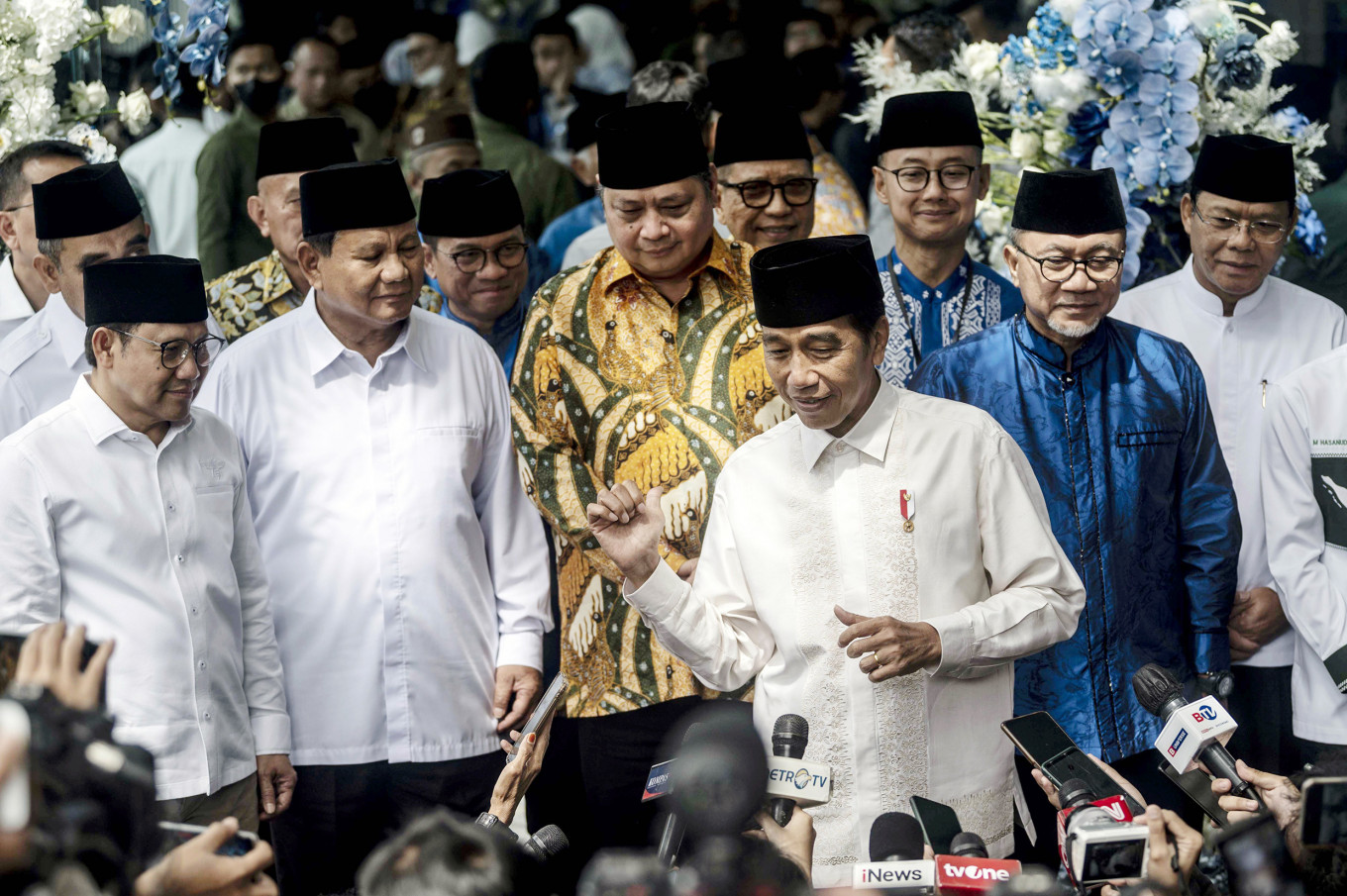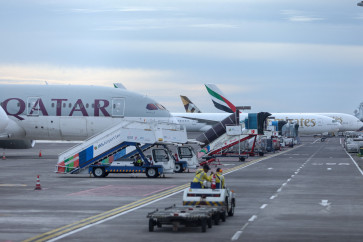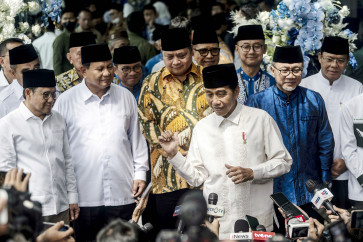Popular Reads
Top Results
Can't find what you're looking for?
View all search resultsPopular Reads
Top Results
Can't find what you're looking for?
View all search resultsHow Jokowi’s patronage politics built the post-authoritarian regime
By avoiding SBY’s missteps and perfecting his patronage system, Jokowi has had a largely successful presidency.
Change text size
Gift Premium Articles
to Anyone
 President Joko “Jokowi“ Widodo (third right), accompanied by National Mandate Party (PAN) chairman Zulkifli Hasan (second right), Golkar Party chairman Airlangga Hartarto (third left), Gerindra chairman Prabowo Subianto (second left), National Awakening Party (PKB) chairman Abdul Muhaimin Iskandar (left) and United Development Party (PPP) acting chairman Muhamad Mardiono (right), delivers a statement to the press on April 2, 2023, after attending a Ramadan gathering at the PAN executive board office in Jakarta. The heads of all the political parties in the pro-government coalition attended the event. (Antara/Aprillio Akbar)
President Joko “Jokowi“ Widodo (third right), accompanied by National Mandate Party (PAN) chairman Zulkifli Hasan (second right), Golkar Party chairman Airlangga Hartarto (third left), Gerindra chairman Prabowo Subianto (second left), National Awakening Party (PKB) chairman Abdul Muhaimin Iskandar (left) and United Development Party (PPP) acting chairman Muhamad Mardiono (right), delivers a statement to the press on April 2, 2023, after attending a Ramadan gathering at the PAN executive board office in Jakarta. The heads of all the political parties in the pro-government coalition attended the event. (Antara/Aprillio Akbar)
I
n the final year of his tenure and less than six months before the presidential election that will determine his successor, President Joko “Jokowi” Widodo is a commanding political figure.
When Jokowi celebrates his ninth year in office on Oct. 20, he will be remembered as a success story for Indonesia’s democracy, and as a local politician and regional head who consolidated national politics and pulled through with a nationwide economic development agenda – and maybe even as a power broker in global diplomacy.
The public is watching in awe, bewildered by the heights that he has reached, and the great efforts he has undertaken to ensure that his legacy will continue. He is no longer a political outsider in the capital. He has become the patriarch of a democratic regime that controls post-authoritarian Indonesia.
How did he get this far? In short, he is an accomplished politician. But upon closer inspection, his success lies in a patronage system that he has perfected from his predecessor Susilo Bambang Yudhoyono (SBY).
After the fall of Soeharto, three forces of political transformation have modernized Indonesia’s democracy: an anti-corruption drive, regional autonomy and free and direct elections. These forces decentralized power, which had previously been consolidated among a small group of military and Java-centric elites that the Soeharto regime had molded in three decades of rule.
Despite the political struggle and power transition which saw the rise and fall of three presidents, the country’s legislative and executive branches have passed laws on corruption, decentralization, regional autonomy and direct legislative and presidential elections that have given birth to a new breed of national leaders, including SBY and Jokowi, who are supported by political parties but directly elected by the people.
But while the two presidents were the results of direct elections, they found challenges in consolidating power and maintained political stability amid diverse groups of political parties, top-level bureaucrats and businesspeople that had shaped the national elite in Jakarta. This has resulted reliance on a patronage system that centers on the government leader who controls the state budget and policymaking.

















